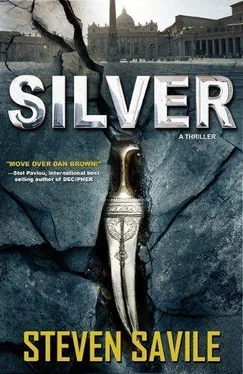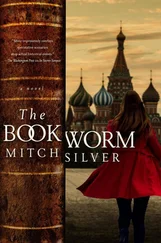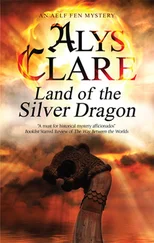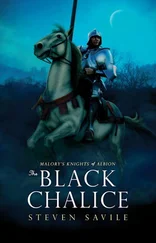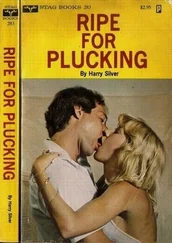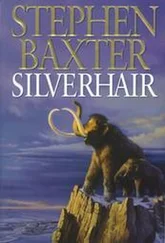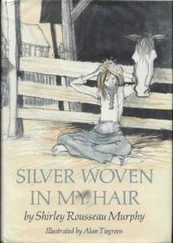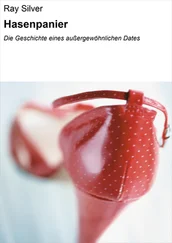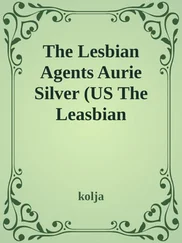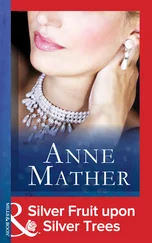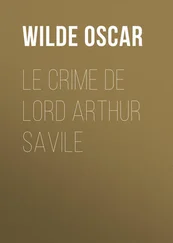Steven Savile - Silver
Здесь есть возможность читать онлайн «Steven Savile - Silver» весь текст электронной книги совершенно бесплатно (целиком полную версию без сокращений). В некоторых случаях можно слушать аудио, скачать через торрент в формате fb2 и присутствует краткое содержание. Жанр: Триллер, на английском языке. Описание произведения, (предисловие) а так же отзывы посетителей доступны на портале библиотеки ЛибКат.
- Название:Silver
- Автор:
- Жанр:
- Год:неизвестен
- ISBN:нет данных
- Рейтинг книги:4 / 5. Голосов: 1
-
Избранное:Добавить в избранное
- Отзывы:
-
Ваша оценка:
- 80
- 1
- 2
- 3
- 4
- 5
Silver: краткое содержание, описание и аннотация
Предлагаем к чтению аннотацию, описание, краткое содержание или предисловие (зависит от того, что написал сам автор книги «Silver»). Если вы не нашли необходимую информацию о книге — напишите в комментариях, мы постараемся отыскать её.
Silver — читать онлайн бесплатно полную книгу (весь текст) целиком
Ниже представлен текст книги, разбитый по страницам. Система сохранения места последней прочитанной страницы, позволяет с удобством читать онлайн бесплатно книгу «Silver», без необходимости каждый раз заново искать на чём Вы остановились. Поставьте закладку, и сможете в любой момент перейти на страницу, на которой закончили чтение.
Интервал:
Закладка:
She checked his pockets for a spare ammo clip. He didn’t have one. She could have popped the magazine and counted out the bullets, but she didn’t want to take the time-not here. She wasn’t out of the woods yet, and any extra seconds were wasted seconds.
She buttoned the shirt up quickly and then ran down the narrow passage. There was a door at the bottom, just before the stairs, a rusty iron thing that appeared to have been welded shut. She checked it just in case. Ipasst give. That was enough for her. She ran barefoot up the stairs, slowing just before she reached the top. She checked left and right. There was no one there. Sokol had come planning to play. He’d known he was alone and would be for a while.
She was on the ground floor now. To the right she could see the interior of a small grocery store. There were no groceries on the shelves. It had been bombed out during the hostilities. To the left was the store room. It was a perfect place to hide someone. The entire strip mall was probably deserted. She went for the door.
The shop floor was thick with dust and broken glass. The windows had been boarded up. It was convenient. It meant no one could see inside. She walked over the broken glass, cutting the souls of her feet. She barely felt the thin shards as they dug in deep. Behind her Orla left a trail of bloody footprints.
She looked back over her shoulder to be sure no one was following and that no one was lurking in the shelves to jump out at her. She reached the door. It was locked and chained. She didn’t hesitate. She put a single shot into the center of the lock’s hasp and unthreaded the chain as it splintered and the tongue came loose. The door itself was locked. She realized then the stupidity of shooting out the lock. The door being chained on the inside meant Sokol and the others had a different way of coming and going. Probably an old goods door around the back of the shop. She couldn’t worry about it now. She had eight or five left. Another one into the lock would make it seven or four if the gun had been fully loaded when Sokol came to torment her. Less if not. The numbers were getting a little low for her liking.
Instead of shooting the final lock she tested the integrity of the boards on the windows. They were flimsy at best. She looked around the little grocery store for something she could use. Back by the till she found one of three old shopping carts. They were buckled and twisted where the heat from the mortar fire had warped them, but they’d be fine for what she had in mind. Orla wrestled one of the carts free of the others. The wheels were buckled and it didn’t want to roll on them. It didn’t matter. She dragged it back far enough to give her a run at the boarded-up window, then launched herself at it, running full-tilt forward with the cart out in front of her like a battering ram.
The cart hit the boards and kept on going through them as she ran.
She heard screaming.
It sounded like a mad banshee inside her head.
It took her a moment to realize it was her.
And then the boards tore free and daylight came flooding in.
Head down, Orla staggered out onto the street, tears streaming down her cheeks.
She breathed in the hot morning air.
She was alive.
Sokol was dead.
That was all that mattered to her.
She stumbled barefoot toward the side of the road. She needed to get as far away from this place as she could.
Cars passed her on the street. She held out her hand, trying to hitch a ride. A few slowed, then accelerated, seeing the gun and the mess she was in. Just when she was beginning to think there were no good Samaritans on the road to Tel Aviv a white SUV slowed. She tensed, expecting to see the toad behind the wheel. If it had been Gavrel Schnur driving she would have shot him through the windshield without a second thought. It wasn’t. It was a middle-aged man with his wife in the seat beside him. Orla stumbled toward the passenger door as the car slowed to a stop at the side of the road.
The woman rolled down her window, took one look at Orla half-naked, battered and bruised and holding the Jericho 941 as though it were a snake, and seemed to understand. She was young, maybe twenty-five herself, but she had grown up in the conflicts of Palestine and Israel; and in Orla she saw a victim. It was as simple as that. Orla guessed the woman had made her husband pull over. The stranger didn’t ask what happened, she simply said, “Get in.” And when Orla was inside the SUV, she said, “Drive.”
They peeled away from the curb and into the traffic.
There was a blonde-haired doll on the backseat. They had a daughter. She wasn’t in the car with them. Orla’s stomach tightened at the realization that the Barbie-ideal of womanhood transcended state and nation. In the passenger seat the woman turned to look at Orla in the back. Orla could see a dozen questions behind her eyes, not least of which was, what have we done? It was natural. People didn’t want to interpose themselves into situations where trouble was rife. But thankfully, her first instinct had been maternal, to protect. Questions were fine now; they were out of there and getting further and further away from the abandoned grocery store by the minute.
“Thank,” Orla said, for the second time in a few short minutes. This time she really meant it.
“What happened to you?”
It was the biggest of all of the potential questions. Too big for her to answer in the back of the car. Orla shook her head. She knew it would look like she was in shock. She looked at the woman and told her, “I thought I was going to die. You saved my life.” It wasn’t much of an answer, but it seemed to appease the woman for the moment at least. She had more questions, practical ones: Where are you from? Where are you staying? Do you want us to take you to the police station?
That was the last thing she wanted. She fended the constant barrage of questions with one of her own. “Do you have a cell phone?” The woman nodded. Of course they did. Everyone in the world had cell phones these days. “Do you mind if I make a call? I need to tell people I am okay.”
“Of course,” the woman fumbled about in her purse and handed a small gold D amp;G Motorola. Orla took it and flipped it open. She dialed in the +44 for England and prayed the dial tone wouldn’t cut off into the operator’s voice telling her that her service plan didn’t cover international calls. It didn’t. She punched in the rest of the numbers for Nonesuch.
Lethe picked up on the second ring. He sounded like he was in the car beside her as he said, “Go for Lethe.”
She breathed out a long shaky sigh. She hadn’t realized just how good it would be to hear a familiar voice. She closed her eyes and smiled. “Hey Jude.”
He answered her with the rest of the famous lyric, then said, “Are you okay? Ah, hell, stupid question, I know. I mean… are you… did they hurt you?”
“Yes,” she said, meaning yes she was okay, yes she was out of there, and yes they had hurt her, but not as much as she was going to hurt them. “I want an address, Jude. Gavrel Schnur. It should be in the Ramat district, North Tel Aviv. He’s with the IDF.”
“I’m on it, gimme a sec. It’s good to hear your voice, Orla. I thought I’d never…” He let the thought hang. He didn’t need to finish it. She’d had the thought often enough from the other side while she was down there in the dark cellar.
“I know,” she said. “Tell the old man I am coming home. I’ve just got one thing to clean up first.”
“You know what he’s going to say,” Lethe told her.
“I know. That’s why I am telling you, not him. Have you got that address for me?”
It was off the 481, close to the water. She knew the area. It wasn’t an area a young politician could afford, even if he was a rising star in the Likud party and favored of Menachem Begin, Shamir and Netanyahu. It was old money. Lots and lots of filthy old money. That should have been her first clue all the way back when she had been looking at the photograph of Schnur and his wife, Dassah. Schnur had to have got his money somehow, and that offshore account in Hottinger amp; Cie and all of those Silverthorn deposits were making an awful lot of sense to her now. The money came from Caspi. That was the joke wasn’t it? Made of Silver. And what was more Christian in terms of iconography than the crown of thorns? She stared out of the window, watching the streets go by.
Читать дальшеИнтервал:
Закладка:
Похожие книги на «Silver»
Представляем Вашему вниманию похожие книги на «Silver» списком для выбора. Мы отобрали схожую по названию и смыслу литературу в надежде предоставить читателям больше вариантов отыскать новые, интересные, ещё непрочитанные произведения.
Обсуждение, отзывы о книге «Silver» и просто собственные мнения читателей. Оставьте ваши комментарии, напишите, что Вы думаете о произведении, его смысле или главных героях. Укажите что конкретно понравилось, а что нет, и почему Вы так считаете.
